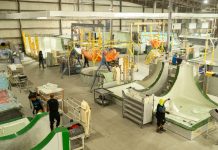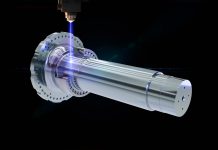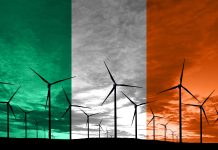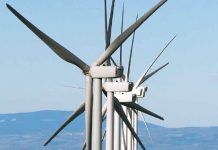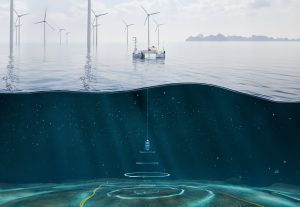Robosys Automation, a leader in marine autonomy systems, is leading Project ORACLES, aventure that will transform the environmental consenting process for offshore wind farms. The Project ORACLES consortium includes ACUAOcean, MSEIS, Plymouth Marine Laboratories, and the Offshore Renewable Energy Catapult.
Funding for Project ORACLES was secured through the UK Research and Innovation’s Innovate UK Launchpad program, in line with the UK government’s Levelling Up plan.
The data collection process for environmental monitoring at proposed OWF sites is labor-intensive, with separate providers handling various aspects such as bird monitoring and sea conditions. Data is collected manually and analyzed after it reaches shore, significantly slowing down the decision-making process.
Aiming to significantly reduce the approval timeline, Project ORACLES will address this by leveraging advanced marine robotics, advanced autonomous systems, and other digital ocean technologies, to streamline, improve, and accelerate this process, and help meet the UK’s target of 60GW of offshore wind capacity by 2030.
“This ambitious project will revolutionize the environmental consenting process for offshore wind farms in the Celtic Sea and other areas across the UK. These technological innovations will reduce the need for crewed survey missions and accelerate data delivery, enabling a faster, more cost-effective consenting process,” said Nigel Lee, Robosys Automation’s CSO and project lead.
“The project’s outcomes will also foster the growth of regional businesses, by opening new markets and supporting the advancement of technological capabilities such as ACUA’s Pioneer USV, and Robosys’ VOYAGER AI advanced maritime autonomy. It will further reinforce the region’s expertise in marine autonomy, clean maritime technologies, and digital ocean innovations to a worldwide stage,” said Lee.
The project’s 14-month research phase will advance the use of clean maritime solutions, including ACUA’s Unmanned Survey Vessel (USV), which will be equipped with a range of environmental sensors (eDNA, ADCP, acoustics) to collect comprehensive, real-time data on marine life, water quality, and environmental changes.
The Project ORACLES consortium will develop the dynamic positioning system (DPS) and a BVLOS (beyond visual line of sight) winch profiling system for water column data collection, and they integrate multiple sensors, delivering a novel and effective output, together with automated ballasting.
Project ORACLES will enable the launch and recovery of multiple environmental sensor payloads which will facilitate comprehensive and cohesive datasets, improving the accuracy and efficiency of environmental assessments. Sensors such as eDNA, ADCP, and acoustics will allow for continuous monitoring of marine life, water quality, and environmental changes from one vessel.
Project ORACLES’ proposed outcomes will enable deployment of significant payloads, support USVs operating in higher sea states and across extended operating periods, and reduce capital, environmental and operational costs, while delivering and managing data more effectively.
More info: www.robosysautomation.com





